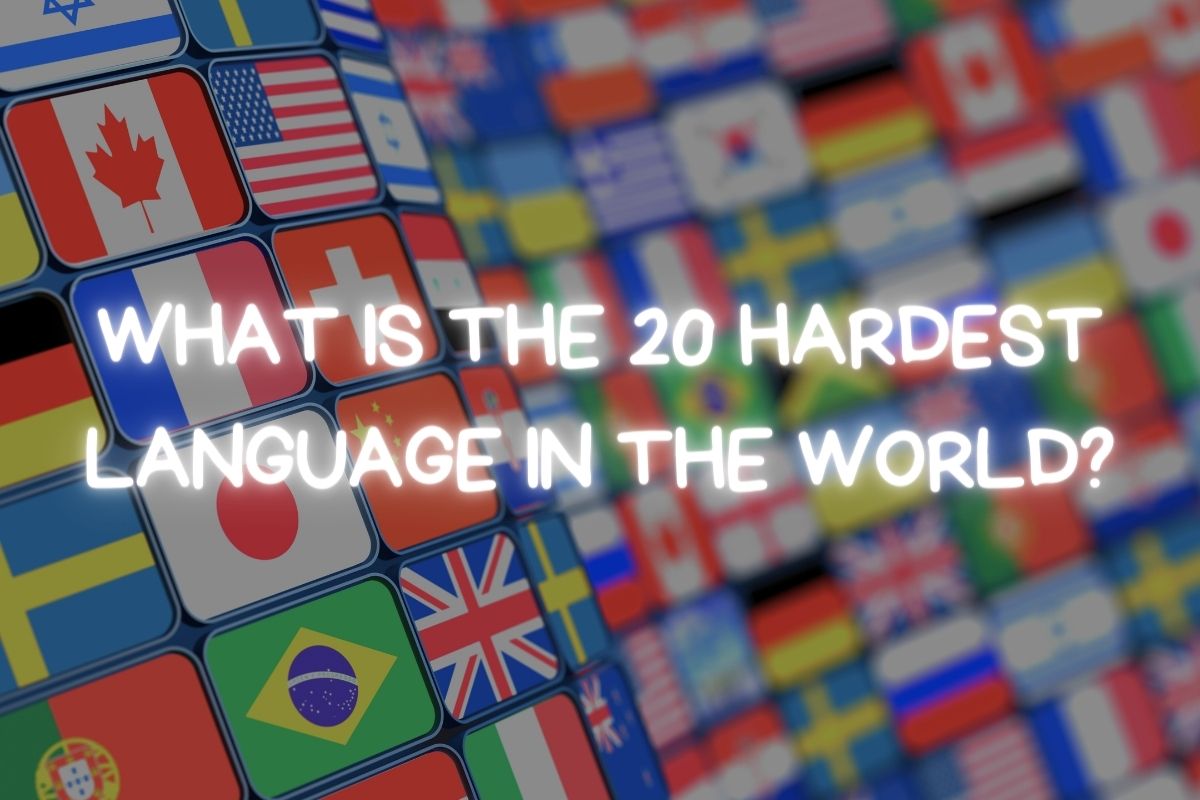To start with a direct answer to the title, learning English can be perceived as both challenging and rewarding, depending on various factors such as personal motivation, learning style, language background, and access to resources.
My personal journey with learning English serves as a testament to this duality: while I faced numerous obstacles, the experiences, connections, and opportunities that emerged from mastering the language have made every effort worthwhile.

Important Points:
- Complexity of the Language: English is known for its irregular spelling, extensive vocabulary, and nuances in meaning, which can pose challenges for learners. This complexity stems from its rich history, having absorbed elements from many different languages, creating a diverse and sometimes inconsistent linguistic structure.
- Cultural Nuances: Beyond grammar and vocabulary, learning English also involves understanding cultural nuances, idioms, and colloquialisms. These elements can significantly impact communication and comprehension, making it essential for learners to immerse themselves in the culture associated with the language.
- Learning Environment: The context in which one learns English can greatly affect the ease of learning. For some, supportive environments, such as language classes, immersion programs, or online communities, can facilitate rapid learning. Conversely, lack of resources or negative experiences can hinder progress.
- Emotional Journey: Language learning is not purely an intellectual exercise; it can be an emotional rollercoaster. Moments of frustration and self-doubt are common, but so are triumphs that lead to newfound confidence. My journey was rich with these emotional highs and lows, each contributing to my growth.
- The Role of Consistency: Frequent practice and consistent exposure to the language are critical to becoming proficient. Whether through reading, speaking, writing, or listening, engaging with English regularly has proven to be a cornerstone of my learning experience.
You might also enjoy:Looking Forward To Seeing You: Grammar + Examples[2025]
As we delve further into the topic of learning English and my personal journey, I’ll share the specific challenges I faced, the strategies I employed, and the milestones I achieved along the way.
—
Learning a new language can feel like navigating a labyrinth: one wrong turn can lead to confusion, while the right path can open doors to new opportunities.
My journey of learning English exemplifies this metaphor, marked by both struggles and breakthroughs.
The process of acquiring proficiency in English has been immensely beneficial, encompassing moments of exasperation mixed with inspiring accomplishments that have shaped my identity and expanded my horizons.
As one of the world’s most spoken languages, English serves as a bridge connecting people across diverse cultures and backgrounds.
For many learners, including myself, this prospect is undeniably attractive yet daunting. The language’s intricate tapestry of rules, exceptions, and ever-evolving vocabulary creates a landscape that often feels overwhelming.
From the outset, I found myself grappling with pronunciation, mastering the subtleties of grammar, and absorbing a vast range of vocabulary—all while simultaneously trying to understand idiomatic expressions that seemed to defy logic.
Cultural context plays a pivotal role in language learning, and English is no exception. Throughout my personal journey, I learned that effective communication transcends mere word comprehension; appreciating the cultural nuances embedded in the language is vital.
Encountering idioms like “it’s raining cats and dogs” or phrases laden with cultural significance pushed me to dig deeper into the everyday realities and stories of English speakers, making my learning experience rich and multifaceted.
Another aspect that significantly influenced my journey was the environment in which I learned. I had the privilege of enrolling in both formal language classes and engaging in informal conversation groups where I encountered native speakers.
These diverse settings provided me with a supportive network, with peers and mentors who inspired me to overcome the obstacles I faced.
Unfortunately, not all learners have access to such enriching experiences, highlighting a critical element in the language acquisition journey: accessibility to quality learning resources and environments.
Among the many lessons I learned, perhaps the most profound was recognizing the emotional rollercoaster that comes with language learning.
There were days filled with frustration, where nothing seemed to stick, often leading to self-doubt.
Yet, these feelings were counterbalanced by triumphs—every successful conversation, every written piece that resonated with a native speaker, and every time I could express myself with clarity added to my confidence and motivation.
Finally, cultivating consistency was paramount in my language learning journey.
Engaging with English in various forms was essential—reading books, watching films, conversing with friends, and writing daily. These experiences reinforced what I learned in class and helped me connect more deeply with the language.
In this exploration of my personal journey in learning English, I will share detailed accounts of the challenges I faced, the strategies that proved effective, and the moments of celebration that marked my growth.
Through this narrative, I aim to offer insights and encouragement to fellow language learners, affirming that while the journey may be arduous, the rewards of mastering English can be profoundly enriching and life-changing.
Join me as I take you through the peaks and valleys of this fascinating adventure, revealing not only the intricacies of the English language but also the beauty of connecting with others around the globe through shared understanding.
You might also enjoy:Emersion Vs Immersion: Meaning, Differences, and Examples
What is the hardest part of learning English?

Well, this is a good question!Many people find that mastering English pronunciation and grammar rules can be challenging.
Additionally, understanding and using idiomatic expressions and colloquialisms can also pose difficulties for language learners. Practice and exposure to the language are key in overcoming these challenges.
How long does it take to fully learn English?
The time required to fully learn English can vary greatly depending on several factors, including your starting proficiency, the amount of time you dedicate to learning, and the methods you use. Here’s a more detailed breakdown:
1.Starting Proficiency
- Beginner: If you are starting from zero, you will need more time compared to someone who already has some basic understanding of English.
- Intermediate: Those with a foundational knowledge can progress more quickly to advanced levels.
2.Time Commitment
- Daily Practice: Consistent daily practice can significantly speed up the learning process. Immersing yourself in the language for several hours a day can led to faster results.
- Weekly Classes: Attending classes once or twice a week will take longer to achieve fluency compared to daily practice.
3.Learning Methods
- Formal Education: Enrolling in language courses, either online or in-person, provides structured learning and access to experienced teachers.
- Self-Study: Using apps, books, and online resources can be effective, especially when combined with other methods.
- Immersion: Living in an English-speaking environment or regularly interacting with native speakers can accelerate learning.
You Might Also Enjoy: Top 60 Most Common Simple Sentences In English
Estimated Timeframes
Basic Conversational Proficiency
- 600-750 Hours: It can take around 600-750 hours of study to reach proficiency in basic conversational English. This level allows you to handle everyday conversations and understand common phrases.
Intermediate to Advanced Proficiency
- 1000-1500 Hours: Reaching an intermediate level, where you can engage in more complex conversations and understand a wider range of topics, may take around 1000-1500 hours of study.
- 2000+ Hours: Achieving advanced proficiency, where you can speak fluently and understand nuanced language, often requires over 2000 hours of dedicated study and practice.
Full Fluency
- Several Years: Mastering the language fluently, including understanding idiomatic expressions, cultural references, and specialized vocabulary, can take several years of continuous study and immersion. This involves not just learning the language but also thinking and expressing yourself naturally in English.
Tips for Accelerating Your Learning
1.Set Clear Goals: Define what level of proficiency you want to achieve and set realistic milestones.
2.Consistent Practice: Dedicate regular time to practice, even if it’s just 15-30 minutes a day.
3.Diverse Resources: Use a variety of learning materials, including textbooks, apps, videos, and conversation partners.
4.Immersion: Surround yourself with English as much as possible. Participate in watching movies, listening to music, and try to think in English.
5.Seek Feedback: Regularly interact with native speakers or teachers who can provide constructive feedback.
You might also enjoy:Too Cute Meaning Vs To Cute (To Vs Too) + Examples
What is the hardest language to learn?
The difficulty of learning a new language can vary greatly depending on several factors, including the learner’s native language, their linguistic background, and their dedication to the learning process. Here’s a more detailed look at some of the languages often considered the hardest to learn, especially for English speakers:
1.Mandarin Chinese
- Complex Writing System: Mandarin uses thousands of unique characters, each representing a word or concept, which can be daunting for learners accustomed to alphabetic systems.
- Tonal Language: Mandarin has four main tones, and the meaning of a word can change entirely based on its tone. This requires learners to develop a keen ear for subtle differences in pronunciation.
- Grammar and Syntax: While Mandarin grammar is relatively straightforward, the lack of cognates (words that have a common etymological origin) with English can make vocabulary acquisition challenging.
2.Arabic
- Script and Pronunciation: Arabic script is written from right to left, and many of its sounds do not exist in English, making pronunciation difficult.
- Dialect Variations: Arabic has numerous dialects, which can differ significantly from one another. Modern Standard Arabic is used in formal settings, but regional dialects are used in everyday conversation.
- Grammar Complexity: Arabic grammar includes complex verb conjugations and noun cases, which can be challenging for learners to master.
3.Japanese
- The Japanese language employs three distinct writing systems: Kanji, which consists of characters derived from Chinese, as well as Hiragana and Katakana.
- Proficiency in all three systems is essential for achieving fluency. Additionally, the Japanese language incorporates various levels of politeness that influence both verb conjugations and word choice. Understanding when and how to use these levels is crucial for effective communication.
- Grammar and Sentence Structure: Japanese grammar is quite different from English, with a subject-object-verb order and various particles that indicate grammatical relationships.
4.Korean
- Hangul Alphabet: While Hangul, the Korean alphabet, is relatively easy to learn, the language’s grammar and syntax are complex.
- Honorifics: Korean uses honorifics to show respect, which affects verb forms and vocabulary. Proper use of honorifics is essential in Korean culture.
- Verb Conjugations: Korean verbs conjugate based on tense, mood, and politeness level, adding layers of complexity to the language.
Factors Influencing Language Learning Difficulty
1.Native Language Influence
- Linguistic Distance: The greater the difference between your native language and the target language, the more difficult it may be to learn. For example, English speakers may find languages with similar roots, like Spanish or French, easier to learn than those with entirely different structures, like Mandarin or Arabic.
2.Learning Environment
- Immersion: Being in an environment where the target language is spoken daily can significantly accelerate learning. Immersion helps learners pick up nuances and colloquial expressions more naturally.
- Resources and Support: Access to quality learning materials, language classes, and native speakers for practice can make a big difference in the learning process.
3.Personal Motivation and Dedication
- Consistency: Regular practice and consistent effort are key to language learning. The more time and effort you invest, the faster you will progress.
- Interest and Engagement: Having a genuine interest in the language and culture can boost motivation and make the learning process more enjoyable.
You might also enjoy:What Kind of Vs What Kinds of – Differences + Examples [2025]
10 Easiest Languages for English Speakers to Learn

Here are 10 of the easiest languages for English speakers to learn:
- Spanish
- French
- Italian
- Portuguese
- Dutch6. Swedish
- Norwegian
- Danish
- German
- Esperanto
These languages are considered easier for English speakers to learn due to similarities in vocabulary, grammar, or sentence structure.
You might also enjoy:Interested In or On: The Differences + Examples [2025]
What is the closest language to English?
The closest language to English is Frisian, which is spoken in the northern part of the Netherlands and in some parts of Germany. It is considered to be the language most closely related to English, as both belong to the West Germanic group of the Indo-European language family.
What is the safest country in the world that speaks English?
According to various safety rankings, countries like Iceland, New Zealand, Switzerland, Canada, and Singapore are often considered among the safest in the. Among these, New Zealand and Canada are English-speaking countries known for their safety and peaceful environments.
25 Cheap Safe English Speaking Countries For Americans

Here is a list of 25 safe and affordable English-speaking countries for Americans to consider visiting or living in:✨
- Canada
- Ireland
- New Zealand
- Australia
- United
- Malta
- Singapore
- South Africa
- Barbados
- Belize
- Costa Rica
- Jamaica
- Bahamas
- Fiji
- Trinidad and Tobago
- Mauritius
- Seychelles
- Ghana
- Kenya
- Rwanda
- Botswana
- Namibia
- Zambia
- Uganda
- Zimbabwe
These countries offer a mix of safety, affordability, and English-speaking populations, making them popular choices for American travelers and expatriates.
Where can I go if I only speak English?
You can go to many places if you only speak English! Countries like the United States, Canada, Australia, the United Kingdom primarily speak English.
Many popular tourist destinations also have English as a common language for visitors. So, there are plenty of options for English speakers to travel and explore the world!
What’s the most difficult thing about learning English?
One of the most difficult things about learning English is mastering the grammar rules, especially the different tenses and sentence structures.
Additionally, pronunciation and vocabulary can also be challenging for non-native speakers. Practice and exposure to the language are key to overcoming these difficulties.
You might also enjoy:Where Does “How is your Day Going?” Originate From?
What are the hardest concepts to learn in English?

Some of the hardest concepts to learn in English include understanding and using idiomatic expressions, mastering irregular verbs, grasping nuances of prepositions, and differentiating between similar-sounding words with different meanings (homophones).
Additionally, the complexities of English grammar, such as verb tenses and sentence structure, can present challenges for learners.
Practice and exposure to the language are key to overcoming these difficulties. Is there a specific concept you’re struggling with that I can help clarify for you?
You might also enjoy: Couch Or Coach: Differences + Usage + Examples [2024]
What is the most difficult language?
Determining the most difficult language is subjective and can vary based on an individual’s native language and linguistic background.
Languages like Mandarin Chinese, Japanese, Arabic, and Korean are often considered challenging for English speakers due to their different writing systems, grammar structures, and tones.
10 Easiest Languages for English Speakers to Learn
Some of the languages often considered relatively easier for English speakers to learn include Spanish, French, Italian, Dutch, Norwegian, Swedish, Portuguese, Indonesian, German, and Danish.
These languages share similarities with English in terms of vocabulary, grammar, or sentence structure, making them more accessible for English speakers.
Which is the most beautiful language?

The perception of what constitutes the “most beautiful” language is highly subjective and varies from person to person.
Many people find languages like Italian, French, Japanese, Spanish, and Arabic to be melodious and pleasant to the ear. Ultimately, beauty in language is a subjective and personal preference.
What’s the oldest language on earth?
Determining the oldest language on Earth is challenging, as languages evolve over time and leave limited written records.
However, some of the oldest known languages still spoken today include Tamil, Sanskrit, Hebrew, and Basque. These languages have ancient roots and rich histories that date back thousands of years.
What’s the sweetest language?
When referring to the “sweetest” language, people often mean which language sounds melodious or pleasant to the ear.
Languages like Italian, French, Spanish, Portuguese, and Japanese are commonly considered sweet-sounding due to their rhythmic intonations and smooth phonetics.
What is the top 10 most spoken language in the world?
The top 10 most spoken languages in the world are:
- English
- Mandarin Chinese
- Hindi
- Spanish
- French
- Standard Arabic
- Bengali
- Russian
- Portuguese
- Indonesian
What language do most millionaires speak?
There is no specific language that most millionaires speak, as wealth and success are not determined by language proficiency. Millionaires come from diverse backgrounds and speak a variety of languages depending on their countries of origin and personal preferences. However, English is often considered a common language among many wealthy individuals due to its widespread use in business and international communication.
Which language has the shortest alphabet?
The language with the shortest alphabet is Rotokas, a language spoken in Papua New Guinea. Rotokas has only 12 letters in its alphabet: A, E, G, I, K, O, P, R, S, T, U, and V.
You Might Also Enjoy:Reinforce Vs Reenforce: 10 Differences + Examples [2025]
What is the most spoken language in the world 2050?
It is difficult to predict with certainty the most spoken language in the world in 2050, as language trends can change over time due to various factors such as population growth, migration patterns, and cultural influences. However, based on current projections, it is estimated that Mandarin Chinese, English, and Spanish may continue to be some of the most spoken languages in the world in 2050.
How many languages does Elon Musk know?
The answer to this question might be interesting to you guys!Elon Musk is known to speak English and Afrikaansently. He has also studied French and German in the past but his proficiency in those languages may not be as high.
You might also enjoy: Objective Vs Subjective Language: Ultimate Guide [2024]
This exploration is not just about linguistic acquisition; it’s about bridging cultural divides and expanding one’s cognitive horizons.
That’s a great perspective! Learning new languages can definitely help bridge cultural divides and expand cognitive horizons.
It allows individuals to connect with people from different backgrounds and gain a deeper understanding of different cultures. Language can be a key tool in fostering empathy, communication, and global understanding.
What is the 20 hardest language in the world?

The 20 hardest languages in the world are often considered to be languages like Mandarin Chinese, Arabic, Japanese, Korean, Finnish, Icelandic, Hungarian, Basque, Navajo, Turkish, Polish, Thai, Georgian, Vietnamese, Mayan languages, Danish, Mongolian, Estonian, Lithuanian, and Czech.
These languages are known for their complex grammar, writing systems, pronunciation, and cultural nuances that make them challenging for learners.
Have you ever attempted to learn one of the 20 hardest languages in the world, and if so, which one?
I do not have the ability to learn languages like humans do. My knowledge is based on data and algorithms, not personal experience.
But I can certainly help you with translation and language learning tools for any of those challenging languages! Just let me know how I can assist you.
What is the hardest language to learn for non-English speakers?
The difficulty of learning a language can vary depending on a person’s native language and learning style. However, languages like Mandarin Chinese, Arabic, and Japanese are often considered some of the toughest languages for non-English speakers to learn due to their complex writing systems, grammar rules, and tonal pronunciation.
What is the easiest language if you speak English?
Languages like Spanish, French, and Italian are often considered relatively easy for English speakers to learn due to their similarity in vocabulary and grammar structure.
Additionally, languages like Dutch and Norwegian are also considered to be easier for English speakers to pick up.
What is the most useful language to learn after English?
Mandarin Chinese is often considered one of the most useful languages to learn after English, as it is the most widely spoken language in the world.
is also highly useful due to its prevalence in many countries and its importance in international business.
Additionally, Arabic, German, and French are also commonly cited as valuable languages to learn for various reasons. It ultimately depends on your personal interests and career goals.
You might also enjoy:Which of the Following: Definition + Complete Usage + Grammar
What is the most similar language to English?

The most similar language to English is considered to be Dutch, as they both belong to the Germanic language family.
Dutch and English share many similar words, grammar structures, and sounds, making it easier for English speakers to learn Dutch compared to other languages.
Which country is not using English language?
The language that is least like English is considered to be Mandarin Chinese, as it belongs to a completely different language family (Sino-Tibetan) and has a very grammar structure, writing system, and pronunciation compared to English.
As for the country not using English language, there are many countries where English is not the primary or official language. Some examples include China (Mandarin Chinese), Russia (Russian), Japan (Japanese), and Brazil (Portuguese).
I hope you enjoyed this lesson!

Hi, welcome to my blog! My name is Omid and I am thrilled to have you here! I am an English language teacher with 12 years of experience and hold multiple international certifications (TESOL, IELTS, TOEFL, PTE, CELTA). Additionally, I hold a PhD in Applied Linguistics with a specialization in Teaching English as a Second Language (TESL), which fuels my passion for teaching English and assisting others in mastering the language. To me, nothing is more rewarding than helping individuals enhance their English language abilities through various methods. So, let’s embark on this journey of learning English together.




